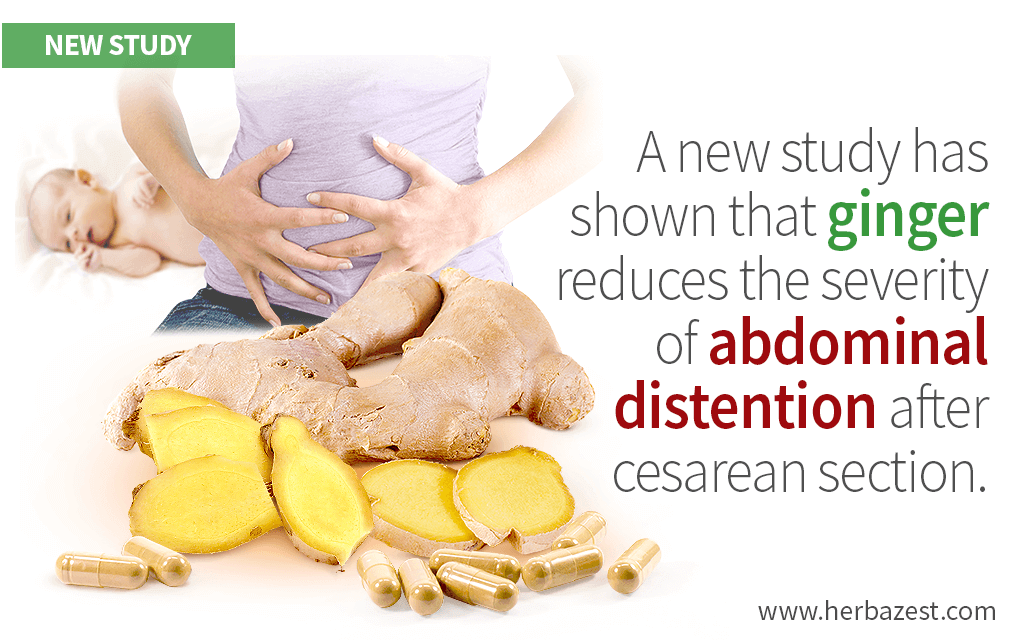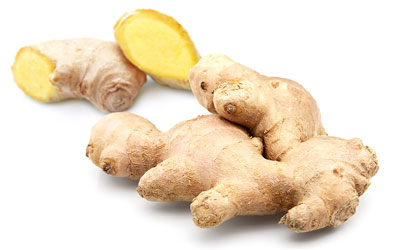It is estimated that 32% of all births in the United States occur through a cesarean section (C-section).1 As an invasive abdominal surgery, C-sections may lead to a complication called ileus, which is a delay in bowel motility associated with highly uncomfortable symptoms, such as abdominal distention, nausea, and vomiting.2 It usually results in extended hospitalization time for new mothers to prevent further complications.
Ginger has been traditionally used and scientifically proven effective for relieving a range of gastrointestinal discomforts and stimulating gastric motility due to its anti-inflammatory, analgesic, antiemetic, and antimicrobial properties.3 The use of ginger after C-section for abdominal distention has not been studied yet.
The purpose of this study was to evaluate the effectiveness of ginger on the prevention of abdominal distention after cesarean section.
The Study
This randomized, double-blind, placebo-controlled trial took place at the Chulalongkorn University in Bangkok, Thailand.
Researchers recruited 178 women between the ages of 18 to 40 who have undergone a cesarean section not more than 24 hours prior to the beginning of the study. Half of the participants were given capsules containing 500 mg of ginger (the intervention group), while the remaining half received placebo capsules. The regimen consisted of taking two capsules three times daily for three days.
The ileus symptoms were self-reported in a daily chart throughout the study. Markers of quality of life (in terms of eating, sleeping, daily activity, and emotions) were measured on the fourth day after surgery.
The Results
Although ginger was not found to prevent post-cesarean abdominal distention, it was observed to significantly lower the severity of abdominal distention in the intervention group. Its efficacy was most significant on the fourth day after C-section.
Moreover, the number of women able to consume foods after C-section was higher in the ginger group than in the placebo group. The ginger group also had first bowel movements after surgery sooner than the control group.
What Does this Mean?
This was the first clinical trial investigating the benefits of using ginger for abdominal distention prevention. It opens a door to its application as an herbal remedy for post-cesarean ileus symptoms, allowing women to regain gut motility in a much faster and safer way.
Consequently, the use of ginger after C-section for gastrointestinal symptom relief will potentially cut down hospitalization time and medical expenses. It will also allow mothers to concentrate on caring for their newborns, while staying strong and healthy.
Although the suspected mechanism of action of ginger is its effect on increasing muscular activity in the gut, more studies are needed to focus on its role in preventing and relieving abdominal distention due to post-operative ileus.
Other herbs that might help stimulate bowel movements include peppermint, dandelion, licorice, and black tea.
Sources
- Open Access Scientific Reports, A randomized, double-blind, placebo-controlled trial on the efficacy of ginger in the prevention of abdominal distention in post cesarean section patients, 2018
Footnotes:
- CDC. (2017). Cesarean Delivery Rate by State. Retrieved November 27, 2019 from https://www.cdc.gov/nchs/pressroom/sosmap/cesarean_births/cesareans.htm
- Medline Plus. (2018). Intestinal obstruction and ileus. Retrieved November 27, 2019 from https://medlineplus.gov/ency/article/000260.htm
- Avicenna Journal of Phytomedicine. (2014). Garlic: a review of potential therapeutic effects. Retrieved November 27, 2019 from https://www.ncbi.nlm.nih.gov/pmc/articles/PMC4103721/





